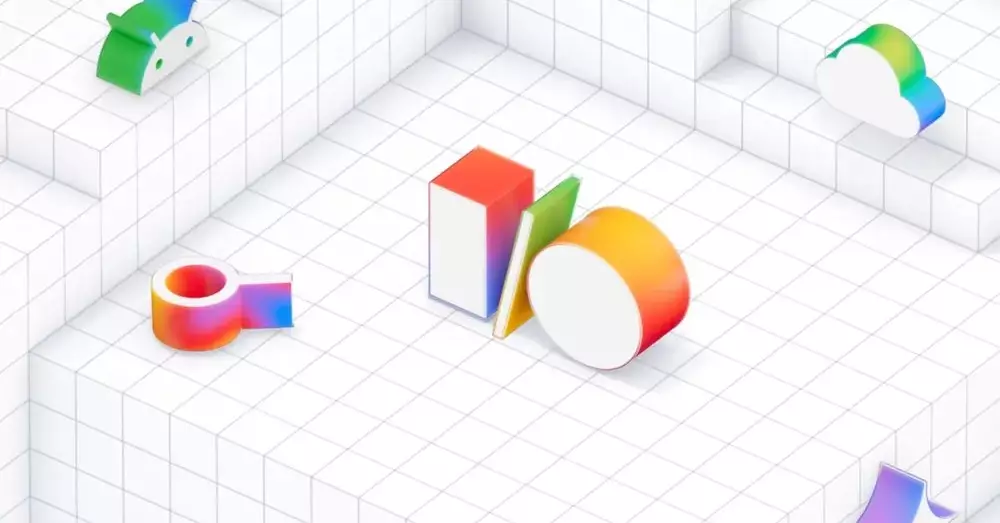As we approach Google’s much-anticipated I/O developer conference, there’s an unmistakable buzz in the tech community surrounding the focus of this year’s keynote. The evidential shift in emphasis towards Artificial Intelligence (AI) signifies the company’s strategic pivot in an increasingly competitive landscape. Having sailed through a turbulent tech year marked by advances from rivals like OpenAI, Microsoft, and Meta, Google must now demonstrate its prowess in AI innovation. For Google to reclaim its leading role, it’s critical to leverage its ongoing projects like Gemini, which is expected to unveil new features that could revolutionize the user experience across devices.
The traditional announcements we’ve come to expect are taking a back seat this year. Instead of groundbreaking Android OS updates, the spotlight will shine on AI advancements and their implications for various platforms, inferring a long-term vision that could reshape how we interact with technology daily. In a world where AI capabilities are evolving quicker than ever, Google’s full-throttle focus on this sector shows its commitment to maintaining relevance and preeminence in the tech hierarchy.
A New Era for Extended Reality (XR)
As important as AI is to Google’s strategic development, the time allotted to Extended Reality (XR) cannot be overlooked. Although XR updates are less prominent on the agenda, Google has indicated its determination to push the envelope by improving the functionality and integration of its XR operating system. Recent discussions surrounding Google’s prototype smart glasses reveal a company eager to innovate and incorporate XR as a core component of its offerings.
While rivals are busy launching devices that capture the public’s imagination, Google has a crucial opportunity to fortify its position in the XR space. The fact that Samsung is preparing to unveil its Project Moohan headset adds pressure for Google to deliver impressive XR narratives during the keynote. By highlighting the rich ecosystem that surrounds Gemini and XR technology, Google aims not only to showcase its progress but also to engage an audience hungry for cutting-edge advancements.
Time for Reflection and Anticipation
In retrospect, Google I/O has historically served as a launchpad for exciting new hardware, such as its Pixel phones and Nest products. However, the current environment is markedly different. As the landscape shifts toward software and AI, Google’s reluctance to announce new devices at this year’s conference seems intentional. The company is clearly signaling that software will take precedence as the core driver of innovation. The current approach, distancing itself from hardware releases, raises questions about the long-term strategy and whether Google is pivoting away from its consumer electronics ambitions.
Ignoring hardware announcements doesn’t mean the conference will lack excitement or relevance. Instead, it signifies a different approach—one that emphasizes how software innovations will impact across various touchpoints. This pivot to AI-centric presentations could ultimately redefine Google’s mission and engagement with developers, fostering collaboration in crafting an ecosystem that revolves around intelligent applications.
The Competitive Landscape and Tech Ecosystems
The timing of I/O 2023 is particularly intriguing, set just after Microsoft’s Build developer event. A head-to-head comparison of the respective keynotes will provide a valuable lens through which to examine how these tech giants strategize their responses amid an evolving industry. Both companies wield significant influence in the AI race; therefore, observers will eagerly anticipate how Google plans to counter Microsoft’s offerings.
Furthermore, the collaborative potential in this AI-focused environment could open windows for partnerships that blend different technological strengths. For instance, Google’s advancements in AI can be harmonized with its relative prowess in search capabilities and cloud services. Such an insightful approach could foster innovations that resonate well beyond the confines of individual offerings, emphasizing synergy in software, devices, and services.
The groundwork laid during I/O could set a precedence that encourages a culture of innovation, enabling Google not just to keep pace with rivals but to help define the future of technology. With the cloud of uncertainty around the future of consumer electronics hanging over it, this year’s I/O showcases a strategic and thoughtful approach to navigating the rapidly-changing tech ecosystem.

